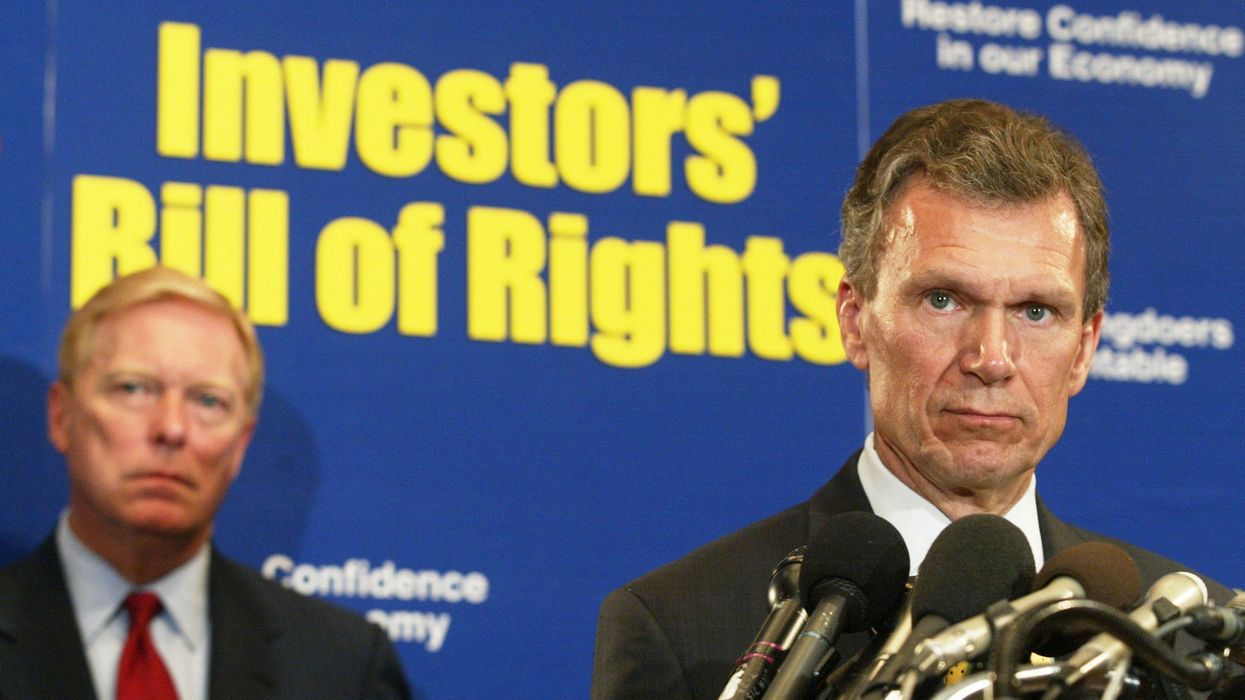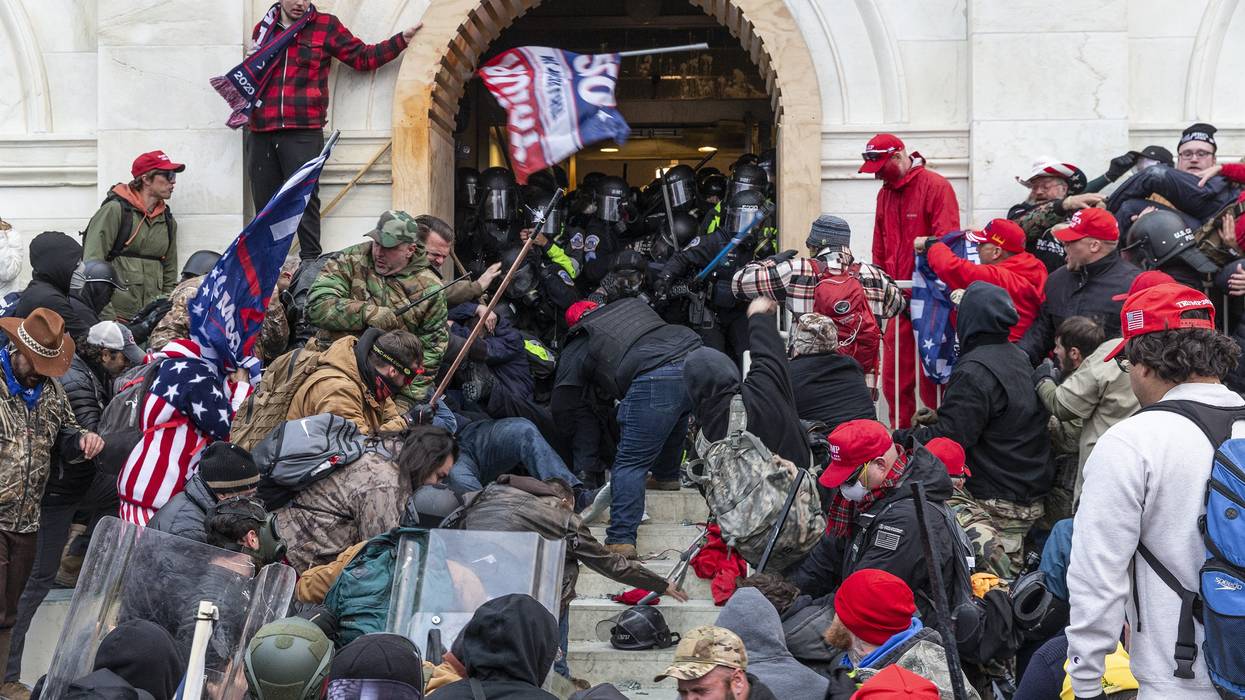Ready to 'Fight for the Working Class': Sanders Endorses Abdul El-Sayed for US Senate
"We need candidates who will stand up to Trump's authoritarianism and protect our democratic way of life."
Within hours of Dr. Abdul El-Sayed confirming his candidacy for U.S. Senate on Thursday, Sen. Bernie Sanders affirmed his support for the Michigan Democrat, who recently resigned as Wayne County public health director to prepare for a run in 2026.
"This is an unprecedented moment in American history. We need an unprecedented response," Sanders (I-Vt.) said in a statement. "We need candidates who are prepared to stand up for the working class of this country and take on the oligarchy."
El-Sayed, a longtime ally of Sanders, joined him last month for a Michigan stop on his nationwide Fighting Oligarchy Tour, which is pushing back against the agenda of Republican President Donald Trump and his collection of billionaires.
"We need candidates who will stand up to Trump's authoritarianism and protect our democratic way of life," the senator declared Thursday. "It is my strong view that Abdul El-Sayed is the kind of leader who will do just that. Abdul is a physician who understands that our current healthcare system is broken and wildly expensive. He understands that healthcare is a human right, which is why he supports Medicare for All."
Sanders also highlighted El-Sayed's commitment to "vigorously fight" against the country's "corrupt campaign finance system" by overturning the U.S. Supreme Court's Citizens United decision, as well as his dedication to raising the minimum wage and making it easier to join unions because "he understands that too many workers in America are earning starvation wages."
"In other words, as a United States senator, he will take on powerful special interests and create a government and economy that work for all of us, not just the few," he concluded. "I am very proud to support Abdul to become the next senator from the great state of Michigan."
Other progressives across the country have joined Sanders in expressing support for El-Sayed on social media. Among them are Democratic Georgia state Rep. Ruwa Romman and Congressman Ro Khanna (D-Calif.), the latter of whom said Thursday that the Michigander "is a friend and a strong champion of Medicare for All and standing up for the human rights and self-determination of Palestinians. He has always stood on principle, and I am excited he is running."
Prior to his Wayne County position, El-Sayed ran for governor of Michigan in 2018 after previously leading the Detroit Health Department. He also authored the 2020 book Healing Politics: A Doctor's Journey Into the Heart of Our Political Epidemic and co-authored the 2021 book Medicare for All: A Citizen's Guide, which features a foreword by Sanders and Rep. Pramila Jayapal (D-Wash.).
Building "a healthier America" is a top priority for El-Sayed. The candidate's other focuses, according to his campaign website, are an economy for working people, clean air and water, more and better education, sensible foreign policy, and solving the housing crisis.
"As I've spoken to Michiganders, one thing's become clear: It's just too hard to get by," Abdul said in a Thursday statement. "But it doesn't have to be. And to fix it, we need to break the chokehold that billionaires and oligarchs like Donald Trump and Elon Musk have on our politics and economy."
"It's not just about what we're fighting against—it's about what we fight for," he asserted. "Michiganders deserve an economy that works for them, guaranteed healthcare, clean air and water, and affordable housing. Just as I have in Detroit and Wayne County, I'm running to deliver government services that work for the rest of us."
El-Sayed hopes to fill the seat of Democratic Sen. Gary Peters, who announced in January that he wouldn't seek a third term in 2026.
As the Detroit Free Press reported Thursday:
El-Sayed... joins state Sen. Mallory McMorrow, of Royal Oak, as the only announced candidates in a Democratic primary race for what is expected to be a hotly contested seat...
Other Democrats looking at the race include U.S. Rep. Haley Stevens, of Birmingham, and former state House Speaker Joe Tate, of Detroit, and pundits have speculated state Attorney General Dana Nessel, who is term-limited in that job, could run as well.
Whoever wins the Democratic primary may face former Republican Congressman Mike Rogers, of White Lake, who narrowly lost to Democratic U.S. Sen. Elissa Slotkin last year.
However, as the Free Press noted, "U.S. Rep. Bill Huizenga, of Holland Township, and Tudor Dixon, the 2022 GOP gubernatorial nominee who lost to Whitmer, are weighing bids. Two lesser-known candidates, Dr. Kent Benham, a dentist in the Deerfield area, and Fred Heurtebise, of Luther, whose website describes him as a welder and engineer, have also filed in the Republican primary."


